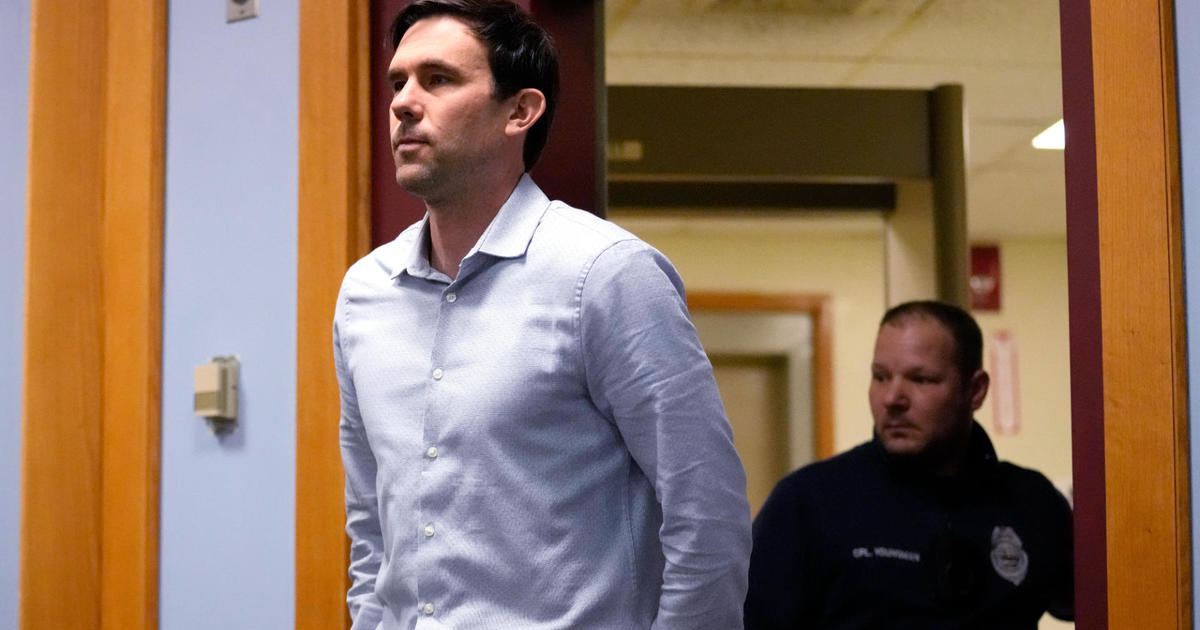Mass. Terror Convict Writes Judge Before Sentencing
BOSTON (AP) — A Massachusetts man convicted of conspiring to help al-Qaida is asking a judge to consider another side of him as the judge prepares to sentence him on terror-related charges.
Tarek Mehanna, of Sudbury, a Boston suburb, was convicted in December of conspiring to help al-Qaida and of trying unsuccessfully to get training at a terrorist camp in Yemen so he could fight U.S. soldiers in Iraq. He is scheduled to be sentenced Thursday in U.S. District Court.
Mehanna faces a possible life sentence on four terror-related charges and three counts of lying to authorities. In a sentencing memo filed in court Monday, Mehanna's lawyers said he should get no more than 6 1/2 years in prison.
In a letter attached to the sentencing memo, Mehanna describes how his first arrest came as he was at Boston's Logan International Airport, en route to a job at a hospital in Saudi Arabia, where he had been asked by the pharmacy director to establish a new diabetes treatment clinic.
Mehanna, who had recently graduated from pharmacy school, said the job offered many perks, and "best of all, I would be making a living alleviating the suffering of others."
"This is the conduct which was interrupted by my first arrest in late 2008," he wrote.
Months later, after he was released on bail, he got a job at a local Islamic private school, teaching math, science and religion to children in grades 6 through 11. He said "the most fulfilling experience of his life" was interrupted when he was arrested a second time as he prepared to leave the house one morning for his teaching job.
"My intention in highlighting the above (is) to provide snapshots of my life that share a common theme, and were not highlighted by the government at the trial," Mehanna wrote. "Both occasions of my arrest represent how two very different worlds collided: the world in which my body currently resides, and the world which my heart will never leave."
In their sentencing memo, Mehanna's lawyers point out that he never did receive terrorist training and say his trip to Yemen at the age of 21 "was entirely unsophisticated."
"There was no evidence that Mehanna's actions actually threatened United States security interests. There was no evidence that Mehanna provided any tangible material support such as funds or weapons to terrorist activity or to Al Qaeda," wrote Mehanna's lawyers, Janice Bassil, J.W. Carney Jr., Sejal Patel and John Oh.
The defense says Mehanna should receive a sentence of between a little more than 5 years to 6 1/2 years.
Prosecutors are expected to file their sentencing memo Tuesday. A spokeswoman for U.S. Attorney Carmen Ortiz declined to comment on the recommendation made by Mehanna's attorneys.
During his trial, prosecutors said Mehanna and two friends plotted to go to Yemen with the intention of receiving terrorist training and hoped to go on to Iraq to fight against U.S. soldiers there. When they couldn't find a camp, they returned home and began translating and distributing publications promoting violent jihad, according to prosecutors.
Mehanna's lawyers said he went to Yemen to look for religious schools and said his online activities were protected by the First Amendment of the U.S. Constitution.
Copyright 2012 The Associated Press.



